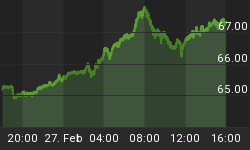Last week the Congressional Budget Office (CBO) issued its annual long-term budget outlook report, and the 2012 numbers are not promising. In fact, the CBO estimates that federal debt will rise to 70% of GDP by the end of the year-- the highest percentage since World War II. The report also paints a stark picture of entitlement spending, as retiring Baby Boomers will cause government spending on health care, Social Security, and Medicare to explode as a percentage of GDP in coming years.
While the mainstream media correctly characterized the CBO report as highly pessimistic, they also ignored longstanding errors of methodology in CBO estimates. And those errors tend to support arguments for higher taxes and government spending, when in fact America needs exactly the opposite.
As Paul Roderick Gregory explained in a recent Forbes column (http://tinyurl.com/cf746dl), CBO has always applied wrongheaded assumptions inherent in Keynesian economics when forecasting future deficits - no matter how many times both history and economic theory have proven such assumptions incorrect. In particular, CBO seems wedded to two enduring Keynesian myths: First, that higher taxes necessarily increase federal revenue and have no negative effect on the economy; and second, that lower government spending hurts the economy. Neither is true, of course.
CBO also fails to factor in unexpected wars and expensive foreign entanglements, and we should not assign too much validity to predictive models based on peace. Judging from the actions and rhetoric coming from both parties in Washington, new military entanglements in Syria and Iran may well spike military spending in coming years.
Despite these sobering budget realities, the CBO report suggests that a solution is possible with merely a few minor adjustments in the way Congress handles economic issues. But what we need are not minor adjustments, but rather a fundamental shift in our philosophy of government. If we could come to our senses about the proper role of government in America, and what level of government interference is appropriate in a free economy, we would quickly find that there is no reason for government to spend so much, borrow so much, and tax so much.
If we simply allowed markets to work free of governmental or Federal Reserve interference, bad debt would be liquidated relatively quickly and malinvestment would be curtailed. Scaled-back regulations would encourage businesses to expand. Lower taxes would jump start investment and spur job creation.
This is not rocket science, it is Economics 101. All it would take is for government to get out of the way. There would be some short term pain, of course, but only by allowing the bubble to burst and bad debt to liquidate can we ever hope to begin building a real economy again.
The CBO report was alarming to most simply because they know neither party will take the steps necessary to avoid eventual fiscal calamity. Instead, despite their rhetoric, both parties want to maintain the fantasy that "deficits don't matter." But the CBO report, combined with what is happening in Greece and the European Union, should finally make the undeniable case that economic realities apply even to industrialized first world economies. We must take concrete steps today to avoid having America become the next Greece.















